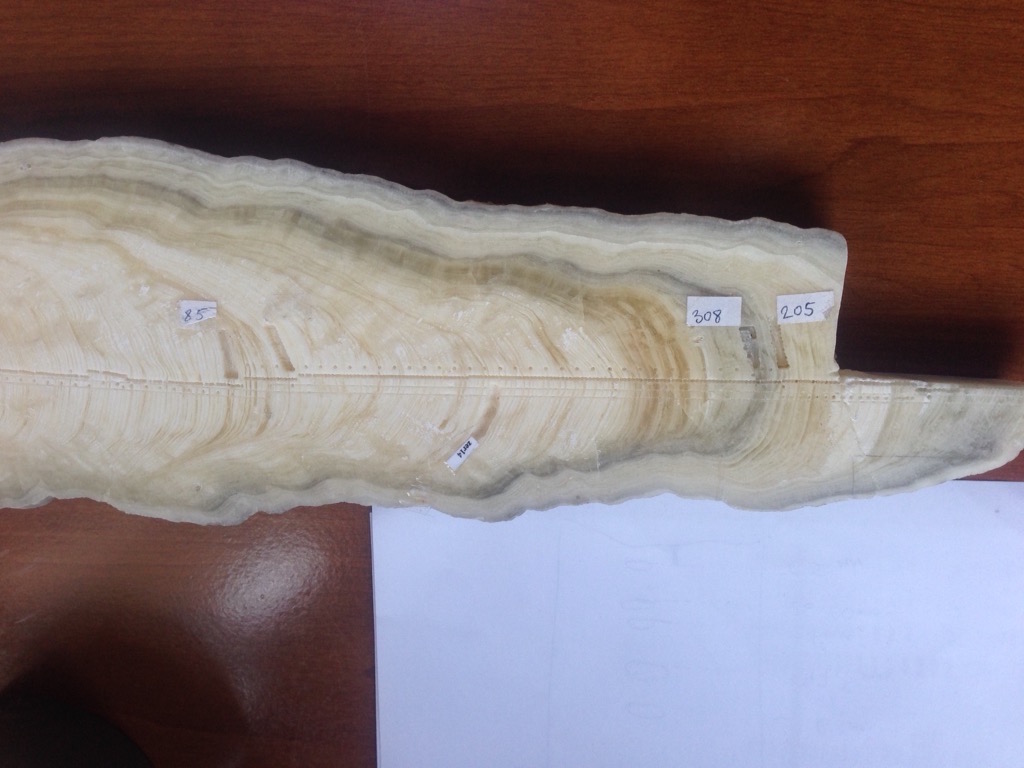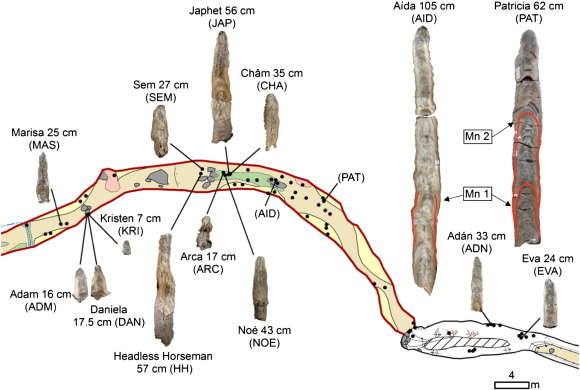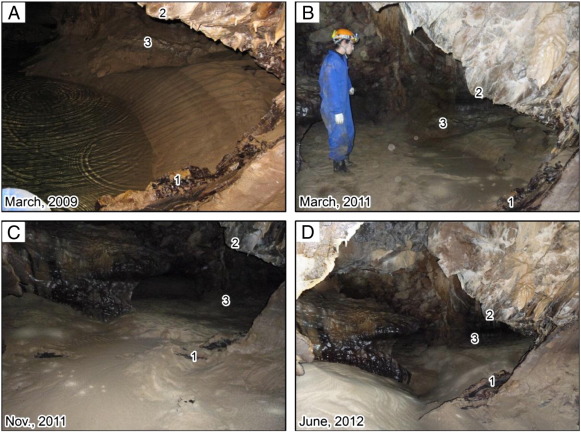Extreme Climate Events: Flooding and Drought in the Late Holocene
Climate change may affect the frequency of extreme precipitation events and this would have significant consequences for society and infrastructure.

We look at whether there are relationships between mean climate state and specific ocean and atmospheric circulation patterns by reconstructing the frequency of past extreme events in cave speleothems. Vadose cave passages can flood during extreme rainfall events, and incorporate detrital sediments in growing speleothems. Our work on cave morphology and flooding mechanisms, is now being extended to the characterization of extreme precipitation events in recent stalagmites with the PhD thesis of Miguel Iglesias. In coeval stalagmites from non-flooding caves, changes in temperature and mean precipitation regime are reconstructed. Using laser ablation ICP-MS records of the changes in the width of seasonal geochemical cycles, we are developing new approaches for optimizing chronology based on.
For many regions of Europe, anthropogenic climate change may make its biggest impact through changes in precipitation, especially reduction in precipitation. The last millennia represents a key time period to study the interplay between natural climate forcing (volcanic events, solar cycles) and precipitation. Using geochemical indicators of moisture balance in speleothems and speleothem growth history, we seek to reconstruct records of the multidecadal to centennial scale changes in precipitation in southwest Europe, a region with large predicted reduction in precipitation in response to anthropogenic climate change. A key focus has been recognizing indicators for the duration, severity, and frequency of drought in southwest Iberia over the last 1000 years, in the PhD thesis of Celia Campa. In this project we are also testing new algorithms to refine the detailed chronology of stalagmites using relationships between stalagmite growth rate and color.
This research is funded by the OPERA (2014-2017) and CHIMERA (2016-2019) projects of the Spanish Ministry of Science, and is conducted by PhD students Miguel Iglesias and Celia Campa, who work as guest researchers at the ETH Zurich

Publications
external pageCampa-Bousoño, Celia; Vadillo, Iñaki; Pisonero, Jorge; Cheng, Hai; Muñoz, Arsenio; Detailed analysis of the lamination and the geochemical varibility of the speleothem Zerolin to study the paleoclimate of SE Spain. EGU 2018call_made
external pageSaúl González-Lemos, Montserrat Jiménez-Sánchez, Heather M. Stoll; Sediment transport during recent cave flooding events and characterization of speleothem archives of past flooding. Geomorphology 2015call_made

Contact
Deputy head of Geological Institute
Professur für Klimageologie
Sonneggstrasse 5
8092
Zürich
Switzerland
